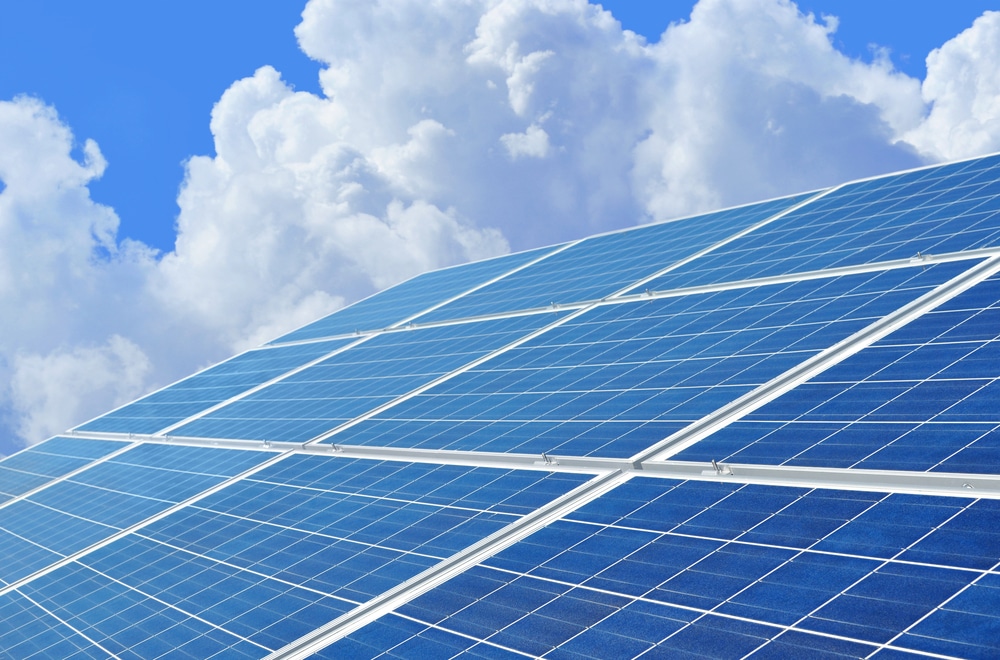Article at a Glance
- Cost and Environmental Benefits: Used solar panels provide a budget-friendly entry into solar energy, costing significantly less than new panels. They also contribute to sustainability by reducing electronic waste and promoting the reuse of materials.
- Risks and Performance Factors: While affordable, used panels may have reduced efficiency due to degradation, physical damage, or a lack of warranty. Efficiency typically declines by 0.5%-1% per year, and older panels may offer lower power output.
- Evaluation Before Purchase: Key aspects to assess include the panels’ wattage, physical condition, compatibility with your system, and performance through testing. Verifying the history and specifications of the panels is crucial for making an informed purchase.
- Best Use Cases: Used solar panels are ideal for lower-energy applications like off-grid setups, temporary projects, or cost-saving DIY installations. However, they aren’t recommended for maximizing long-term energy output or taking advantage of incentives tied to new systems.
Switching to solar energy is a smart way to save money on electricity bills while reducing your carbon footprint. When researching solar options, you may wonder: “Should you buy used solar panels?” Buying used solar panels can cut upfront costs, but several key factors should be weighed first.
Used solar panels are becoming more available on the market as homeowners and businesses upgrade their systems. The idea of purchasing used panels might seem like an easy way to cut costs, but it is essential to weigh the pros and cons carefully.
Before buying, you must consider factors like efficiency loss, warranties, and compatibility with your systems. In this guide, RxSun will explain whether purchasing used solar panels is a good investment, discussing energy storage, solar radiation, and other key considerations.
Understanding Used Solar Panels
Used solar panels are previously owned photovoltaics (PV) that homeowners, businesses, or solar farms have removed and resold. These panels may come from system upgrades, damaged arrays, or decommissioned projects.
While used solar panels are often more affordable, they come with risks, including reduced performance and shorter lifespans. Solar panels are designed to last for decades, but over time, their efficiency loss becomes noticeable. When panels are removed and resold, their history is not always transparent.
Some may have been exposed to harsh weather. They might have suffered from microcracks or could have been improperly handled during removal. Understanding these factors is crucial to making an informed decision when considering your investment.
Why Are Solar Panels Resold?
Solar panels may end up on the market for several reasons, including:
- System upgrades: Homeowners or businesses replace older panels with newer, more efficient models all the time. As solar technology advances, many owners opt for high-output panels to maximize energy production.
- Weather damage: Some panels may have minor cosmetic damage but still function. However, even small cracks or discoloration can impact performance over time.
- Decommissioned projects: Large-scale solar farms replace aging panels with higher-output versions. Outdated panels are often sold at discounted rates but may have already experienced years of wear and tear.
Knowing why a panel is being resold can help you assess if it’s a smart purchase.
The Benefits of Purchasing Used Solar Panels
Should you buy used solar panels? Doing so can be a cost-effective way to install solar energy. You can enjoy these benefits:
Cost Savings
One of the most compelling reasons to buy used solar panels is the reduced price. New solar panels typically cost between $2.50 and $3.50 per watt, while used panels can be found for as little as $0.10 to $0.60 per watt. For budget-conscious buyers, this price difference can make solar energy more affordable.
A Lower Environmental Impact
By purchasing used solar panels, you’re giving the equipment a second life, ultimately promoting sustainability. This helps reduce electronic waste and lowers the demand for new solar panel production, which involves the extraction of raw materials and energy-intensive manufacturing processes.
Accessibility for Budget-Conscious Consumers
For homeowners or small businesses that cannot afford the high upfront costs of a new solar system, used panels provide an affordable way to transition to renewable energy.
Convenience for Small-Scale and Off-Grid Systems
If you’re building an off-grid solar setup for a cabin, RV, or boat, using solar panels can be a cost-effective option. Many solar hobbyists and independent installers find that used panels perform well for smaller energy needs.
Things To Consider Before Buying Used Solar Panels
Before purchasing used solar panels, it’s crucial to evaluate key factors that impact their performance and longevity. Here’s what you need to keep in mind:
Wattage and Power Output
Older panels may have lower wattage and efficiency than newer models. Check the panel’s wattage rating to ensure it meets your energy requirements.
Degradation and Efficiency
Solar panels degrade over time, losing around 0.5% of their efficiency per year. A 10-year-old panel may operate at only 90% to 95% of its original capacity. Be sure to ask for efficiency test results before making a purchase.
Warranty and Manufacturer Support
New solar panels come with warranties that typically last 20 to 25 years. Used panels may no longer be covered, meaning any future repairs or replacements will require out-of-pocket expenses.
Physical Condition
Before purchasing, inspect the panels for physical damage, such as:
- Cracks or chips in the glass
- Corrosion or rust on the frame
- Discoloration that may indicate internal damage
- Loose or frayed wires
Compatibility With Your Systems
Ensure that the used panels match the voltage and amperage requirements of your existing systems. Mismatched panels can lead to inefficiencies or might damage your inverter and batteries.
How Solar Panel Efficiency Declines Over Time
Solar panels naturally degrade, reducing their ability to convert solar radiation into electricity. Most new panels degrade at a rate of 0.5% to 1% per year, meaning a 20-year-old panel may operate at only 80% of its original capacity.
Factors that impact efficiency loss include:
- Exposure to harsh weather: Extreme temperatures, hail, and high winds can accelerate wear. Panels exposed to constant direct sunlight may experience more degradation than those in milder climates.
- Cloudy and overcast conditions: Older panels may generate less power under diffused light conditions, making them less effective in regions with frequent cloud cover.
- Physical wear and tear: Small cracks or moisture infiltration can reduce performance. Over time, these minor issues can lead to major efficiency losses.
Knowing how efficiency declines over time can help you decide if used panels are worth it.
Testing and Evaluating Used Solar Panels
When deciding, “Should you buy used solar panels?” always inspect and test the equipment before buying to confirm their performance. Key inspection steps include the following:
- Check for physical damage: Look for cracks, discoloration, or warping on the panel surface. Any visible damage could indicate internal issues.
- Test output performance: Use a multimeter to measure voltage and current. This will help you determine whether the panel is still producing adequate power.
- Verify panel specifications: Ensure the wattage and voltage align with your solar system. Mismatched panels can lead to inefficiencies or system failures.
- Confirm manufacturer and model: Research the panel’s original performance rating and expected lifespan. Understanding the history of the panel can help you assess its future performance.
Where To Purchase Used Solar Panels
If you decide to buy used solar panels, source them from reputable vendors to ensure quality. Here are some reliable sources for used solar panels:
- Certified solar equipment resellers: These companies specialize in second-hand solar components. Such resellers often test and refurbish panels before selling them.
- Solar farm liquidation sales: Utility-scale projects sometimes sell decommissioned panels. You may find bulk discounts, but this does not always guarantee quality.
- Online marketplaces: Websites like EnergySage and SolarReviews connect buyers with reputable sellers. Be sure to check seller ratings and reviews before making a purchase.
- Local solar installers: Some installers sell used panels after performing system upgrades. Working with a local provider may allow for better quality control and support.
When Used Solar Panels Are a Smart Choice
Purchasing used solar panels isn’t for everyone. In some cases, though, it can be a practical and cost-effective choice. If you’re on a tight budget, used panels provide an entry-level option that allows you to start generating solar energy without the high upfront cost of new systems.
This can be especially beneficial if you’re looking to save money on installation while still reducing your reliance on grid electricity. Used systems are also a great choice for smaller projects that don’t require maximum efficiency.
For off-grid cabins, backup power, or DIY solar projects, used panels can be a cost-effective solution.
Additionally, suppose you’re willing to accept slightly lower efficiency due to natural degradation over time. In that case, you might still find used panels sufficient for your energy needs, especially in locations with abundant solar radiation.
When You Should Avoid Used Solar Panels
Despite the potential savings, used panels are not the best choice for many applications. If you need maximum energy output, new panels are a smarter investment since older ones lose efficiency.
This is particularly important for homeowners looking to maximize long-term savings on electricity bills. Another reason to reconsider using solar panels is if your state offers financial incentives for new solar installations.
Many government rebates, tax credits, and solar incentives apply only to new panels, making brand-new systems more cost-effective in the long run. Additionally, used solar panels typically do not come with a warranty, which means you could face expensive repairs or replacements down the line.
If long-term reliability and warranty coverage are essential to you, purchasing new solar panels is a safer and more secure investment.
Installation and Maintenance Considerations
When buying used solar panels, you should also keep installation and maintenance requirements in mind. Unlike new panels, which often come with professional installation services and support, used panels may require additional effort to integrate.
Such systems might also need extra maintenance due to wear and tear. You’ll need to perform regular inspections to check for issues like cracks, corrosion, or electrical malfunctions.
RxSun’s Expert Take on Buying Used Solar Panels
When deciding, “Should you buy used solar panels?” Consider your budget, energy needs, and long-term goals. While used panels may seem attractive initially, you will face risks of efficiency loss, warranty lapses, and potential damage.
At RxSun, we believe in providing high-quality solar solutions that maximize energy efficiency and long-term savings. If you decide to invest in a new system for long-term savings, our experts can help guide you toward the best choice for your home. Call RxSun today at (800) 607-9786 to go solar.
 800-607-9786
800-607-9786

 1-800-60-RXSUN
1-800-60-RXSUN